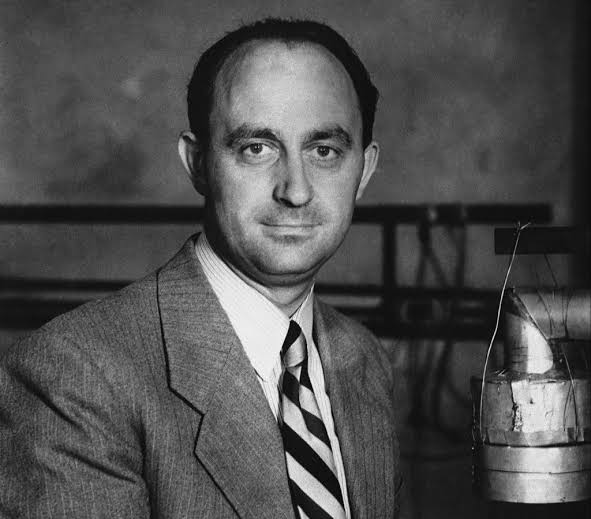The Prisoner's Dilemma is one of many games studied in game theory. In fact, most strategic interactions between two or more decision-makers, where choices impact each other's outcomes, can be analyzed using game theory. We tend to engage in these kinds of situations in daily lives, where not figuring out the best strategy can mean as much as the difference between life and death, war and peace, flourishing, and the destruction of the planet.
One of this kind of situation took place in the 1940s. The United States was conducting a secret research and development project during World War II called The Manhattan Project. It led to the creation of the first nuclear weapon. The project was carried out by J. Robert Oppenheimer, Enrico Fermi, and of course, Sir Richard Feynman as the key scientists with the main objective of developing an atomic bomb before Nazi Germany or other adversaries, like the USSR.



The Manhattan Project was successful. As per the reports, The first nuclear test, Trinity, was conducted on July 16, 1945, in New Mexico, proving the bomb's destructive power. This gave the United States immense military power, which they used to stop World War - II by bombing Japan's two major cities - Hiroshima on Aug 06, 1945, and Nagasaki on Aug 09, 1945. Japan had no choice but to surrender on Aug 15, 1945.

US spent almost $10 trillion (adjusted for Inflation) for this. With this attack, the US aimed to become a superpower, and they attained the tag. After a few years of this entire incident, On the 3rd of September, 1949, an American weather monitoring plane collected air samples over Japan, and they found traces of radioactive material. The Navy quickly collected and tested rainwater samples from their ships and bases all over the world. They also detected small amounts of Cerium-141 and Yttrium-91.
These isotopes are rare and could only come from a nuclear explosion, with a short life span of only one or two months, this made their suspicion stronger as the US Military hadn't performed any tests that year, so the only possible conclusion was that the Soviet Union had figured out how to make a nuclear bomb.
This created fear in the U.S. as the Soviets would soon achieve nuclear parity and potentially launch a first strike. This will dilute the power the US had for all these years; it will no longer be concentrated in the US. A lot of people in the US were in favor that the United States should nuke the Soviets. It was a general assumption that the war was inevitable.
John von Neumann
"If you say why not bomb them tomorrow, I say, why not bomb them today? If you say today at five o'clock, I say why not at one o'clock?"
This shows a great urgency to take the first move and take the lead in the war. But the question is, did the U.S. Followed His Advice? Thankfully, they did not. Instead, they shook hands with the USSR, which led to a balance of power instead of a devastating war.
Looking from a game theory perspective, Faced with the threat of getting ahead in the arms race, the U.S. had to weigh its options carefully. At the start of the 1940s, the United States had three choices:
- Cooperate and not develop the technology further,
- Defect and develop the technology,
- Or cooperate in the hope that the USSR would do the same; however, if the USSR defected instead, they might develop the technology and use it against the US.
The Nash equilibrium was to develop a nuclear bomb. This led them into a much worse situation. If only they had cooperated at the start and decided not to develop this technology further, it would not have led to a disastrous war, and they would have saved so much money and time. But again, the risk of betrayal is too high, that's the core issue - trust is fragile, especially between rival nations. Even if most countries agreed to disarm, just one nation secretly keeping or developing nuclear weapons would give them massive power over everyone else. That fear keeps the cycle going.
It's a classic example of the security dilemma - where actions taken for self-defense (like developing nukes) make others feel threatened, pushing them to do the same. The result? An arms race that no one wants but no one can risk stopping.
.jpeg)
At present time, nine countries (including India) own nukes, and 90% of those nukes in total are owned by the US and the Soviets (now Russia). The United States and Russia have made efforts to reduce nuclear weapons through treaties and other agreements. To ensure that the United States and Russia are not being played by each other, they eliminate some of the weapons, and then they inspect each other with full certainty that the nukes have been destroyed. Then they move to eliminate the next batch of nukes.
Positive-sum 'games'
Game theory applies everywhere, from price wars between companies, nature's biology, to a freaking war. We have seen through studies that Situations we often perceive as "zero-sum," where one person's gain necessarily means another's loss, are not as competitive as they seem. In situations like the Cold War, which most people thought to be a zero-sum game, if anything, we discovered that there were opportunities for cooperation.
Arms reduction treaties are a great example. The U.S. and the USSR figured out that if they could find a way to cooperate, they could both save an enormous amount of money and effort by reducing the number of weapons that they had.
It shows us the power of cooperation. I mean, Look at the strategy 'tit for tat' as an individual, using that strategy will take you to tie with the other player at best, and worse off, you may lose. But it is not about winning or losing as an individual, using these strategies will ensure you win as a team. In the longer term, you will gain much more. It's about fostering cooperation.
This article is a sequel to the previous one on game theory. If you haven't read it yet, I recommend that you do so as well. You can find it here . That's it on Game Theory. Back to reading now!